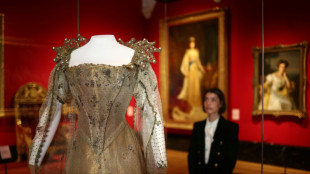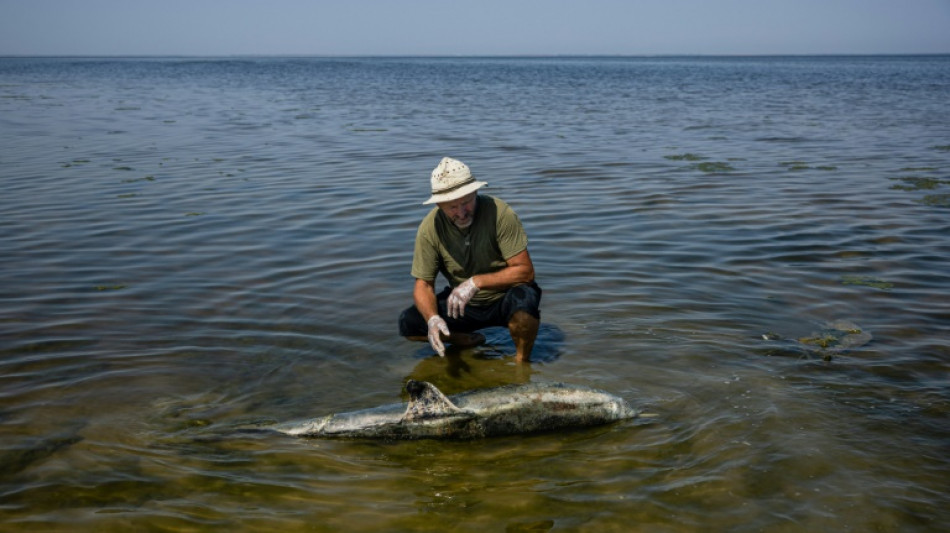
-
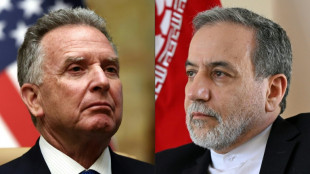 Iran delegation in Oman for high-stakes nuclear talks with US
Iran delegation in Oman for high-stakes nuclear talks with US
-
Australia beat Colombia to end BJK Cup bid on winning note

-
 German refinery's plight prompts calls for return of Russian oil
German refinery's plight prompts calls for return of Russian oil
-
Trump carves up world and international order with it
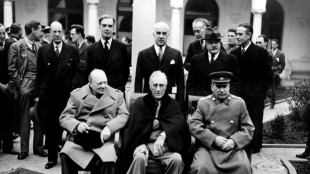
-
 Paris theatre soul-searching after allegations of sexual abuse
Paris theatre soul-searching after allegations of sexual abuse
-
US, Iran to hold high-stakes nuclear talks
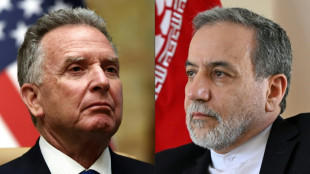
-
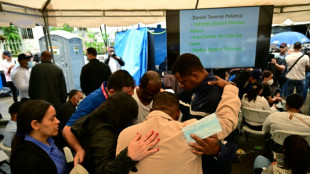 Frustrated families await news days after 222 killed in Dominican club disaster
Frustrated families await news days after 222 killed in Dominican club disaster
-
Jokic triple double as Denver fight back for big win

-
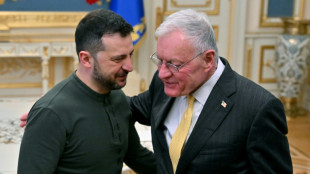 Trump envoy suggests allied zones of control in Ukraine
Trump envoy suggests allied zones of control in Ukraine
-
Iraqi markets a haven for pedlars escaping Iran's economic woes
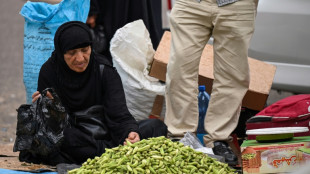
-
 Chinese manufacturers in fighting spirits despite scrapped US orders
Chinese manufacturers in fighting spirits despite scrapped US orders
-
Argentina receives $42 bn from international financial institutions
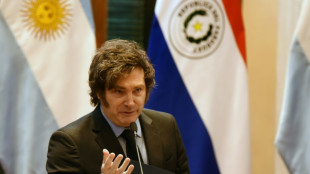
-
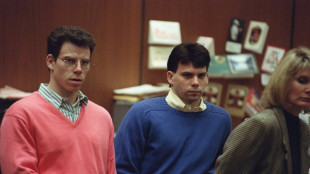 Menendez brothers' resentencing can go ahead: LA judge rules
Menendez brothers' resentencing can go ahead: LA judge rules
-
'Hard on the body': Canadian troops train for Arctic defense
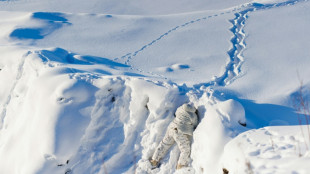
-
 Trump, 78, says feels in 'very good shape' after annual checkup
Trump, 78, says feels in 'very good shape' after annual checkup
-
McKellar 'very, very proud' after 'Tahs tame rampant Chiefs

-
 Man executed by firing squad in South Carolina
Man executed by firing squad in South Carolina
-
Defending champ Scheffler three back after tough day at Augusta

-
 Ballester apologizes to Augusta National for relief in Rae's Creek
Ballester apologizes to Augusta National for relief in Rae's Creek
-
Scorching Coachella kicks off as Lady Gaga set to helm main stage

-
 McIlroy, DeChambeau charge but Rose clings to Masters lead
McIlroy, DeChambeau charge but Rose clings to Masters lead
-
Langer misses cut to bring 41st and final Masters appearance to a close

-
 Ecuador presidential hopefuls make last pitch to voters
Ecuador presidential hopefuls make last pitch to voters
-
Rose knocking on the door of a major again at the Masters

-
 DeChambeau finding right balance at Augusta National
DeChambeau finding right balance at Augusta National
-
Spurs leaker not a player says Postecoglou

-
 All Black Barrett helps Leinster into Champions Cup semis
All Black Barrett helps Leinster into Champions Cup semis
-
Round-two rebound: Resilient McIlroy right back in the Masters hunt

-
 Asset flight challenges US safe haven status
Asset flight challenges US safe haven status
-
Menendez brothers appear in LA court for resentencing hearing
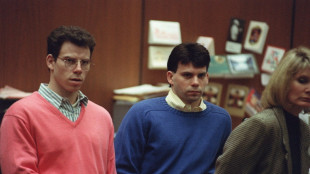
-
 McIlroy, DeChambeau charge as Rose clings to Masters lead
McIlroy, DeChambeau charge as Rose clings to Masters lead
-
UN seeks $275 million in aid for Myanmar quake survivors
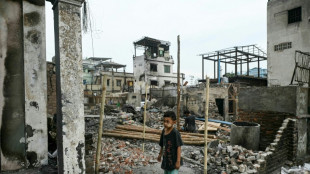
-
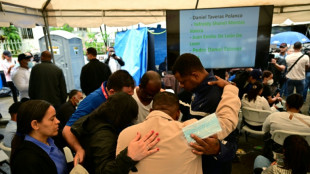 Frustrated families await news days after 221 killed in Dominican club disaster
Frustrated families await news days after 221 killed in Dominican club disaster
-
Trump wants to halt climate research by key agency: reports
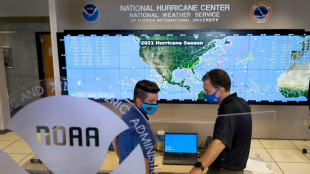
-
 Fed official says 'absolutely' ready to intervene in financial markets
Fed official says 'absolutely' ready to intervene in financial markets
-
Slumping Homa happy to be headed into weekend at the Masters

-
 Morbidelli fastest ahead of cagey MotoGP title rivals in Qatar practise
Morbidelli fastest ahead of cagey MotoGP title rivals in Qatar practise
-
Musetti stuns Monte Carlo Masters champion Tsitsipas to reach semis

-
 Abuse scandal returns to haunt the flying 'butterflies' of Italian gymnastics
Abuse scandal returns to haunt the flying 'butterflies' of Italian gymnastics
-
Trump defends policy after China hits US with 125% tariffs

-
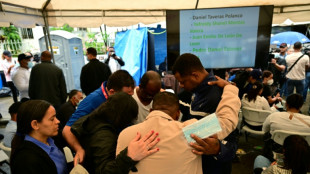 Frustrated families await news days after Dominican club disaster
Frustrated families await news days after Dominican club disaster
-
McLarens dominate Bahrain practice, Verstappen rues 'too slow' Red Bull

-
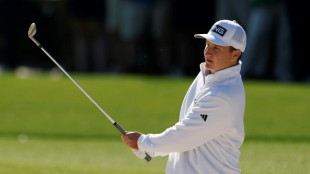 Eight birdies rescue Masters rookie McCarty after horror start
Eight birdies rescue Masters rookie McCarty after horror start
-
RFK Jr's autism 'epidemic' study raises anti-vaxx fears
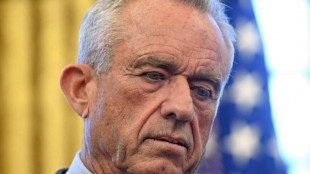
-
 Trump -- oldest elected US president -- undergoes physical
Trump -- oldest elected US president -- undergoes physical
-
Rose clings to Masters lead as McIlroy, DeChambeau charge

-
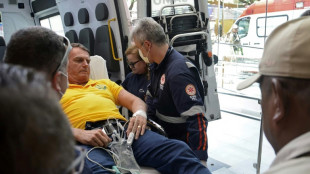 Brazil's Bolsonaro hospitalized with abdominal pain, 'stable'
Brazil's Bolsonaro hospitalized with abdominal pain, 'stable'
-
Canada, US to start trade talks in May: Carney

-
 Six arrested for murder of notorious Inter Milan ultra
Six arrested for murder of notorious Inter Milan ultra
-
Pig kidney removed from US transplant patient, but she set record


Black Sea dolphins casualties of Russia's war in Ukraine
Pacing up and down a beach of fine white sand on the Black Sea coast, 63 year-old Ukrainian scientist Ivan Rusev breathes a sigh of relief: he did not find any dead dolphins today.
A few moments earlier he had rushed towards what he thought was a stranded dolphin. Mercifully it turned out only to be "tangled fishing gear".
Rusev spoke to AFP from the Tuzly Estuaries National Nature Park, a protected area of 280 square kilometres (108 square miles) in the Bessarabia region of south-west Ukraine.
Rusev, whose weather-beaten face is shaded by a hat he brought during adventures in central Asia, is the scientific director of the park.
Now his job entails walking every morning along beaches bordered by anti-tank mines in search of the dolphins that have been washing up here since the beginning of the war.
"We only found three dolphins over our entire 44 kilometres (27 miles) coastline last year," he tells AFP.
"This year, over the five kilometres (3 miles) that we can still access, we already found 35 of them."
Much of the coastline has been off-limits to employees of the park since Ukrainian troops took up positions there to prevent any possible Russian sea assault.
This means Rusev and his team cannot say exactly how many dolphins have been stranded in the park or survey the full extent of the damage.
- Dangerous sonars -
In any case, the death toll is "terrifying," says Rusev, who has been keeping an online diary -- now widely followed on Facebook -- about the impact of the war on wildlife.
When dolphins started washing up on the coast in March, Rusev and his team had to get to work quickly to spot dead animals before the many jackals roaming the area got to them.
"Then, we reached out to our colleagues in Turkey, Bulgaria, Romania. Everyone witnessed the same thing: a huge number of dolphins have died since the beginning of the war," Rusev said.
The Turkish Marine Research Foundation (TUDAV) warned in March of an "unusual increase" in dead dolphins washing ashore on the Black Sea coast.
Rusev estimates that 5,000 dolphins have been killed -- about 2 percent of the total dolphin population in the Black Sea.
The Black Sea was home to an estimated 2 million dolphins during the 20th century, but fishing and pollution contributed to their decline.
A survey found there were about 250,000 of dolphins left in 2020.
There's no doubt in Rusev's mind: military sonars used by Russian warships are to blame for the current bloodbath.
The powerful sonars used by warships and submarines "interfere with dolphin's hearing systems", he explains.
"This destroys their inner ear, they become blind and cannot navigate or hunt," and are more susceptible to lethal disease due to their weakened immune systems, according to Rusev.
The dolphin remains do not show any trace of fishing nets or wounds, which for Rusev is further evidence ruling out the possibility they died any other way.
- Trading blame -
Russia and Ukraine are trading blame even on the environmental toll of the war, so Rusev's theory is disputed.
Russian scientists who looked into the increase in dolphin mortality blamed morbillivirus, a common lethal disease for the species.
Rusev and his team took samples from dolphins that had recently been found and have sent them to Germany and Italy to settle the debate.
Usually Rusev sleeps in a cabin next to the entrance of the park.
Today, the carcass of a dead dolphin lies next to his cabin, in the lagoon's stagnant waters.
Rusev covered it with a fishing net. That way, he explains, fish will eat the flesh, and he can give the remaining skeleton to a museum.
The scientist, sometimes halting conversation to marvel at a white-tailed sea eagle or a flock of pelicans, is visibly worried.
Military strikes have already hit the national park and burned 100 hectares of protected land.
"War is a terrifying thing," he said. "It impacts the whole ecosystem, including species that won't easily recover.
"Nature's balance won't easily recover either."
Y.Kobayashi--AMWN
